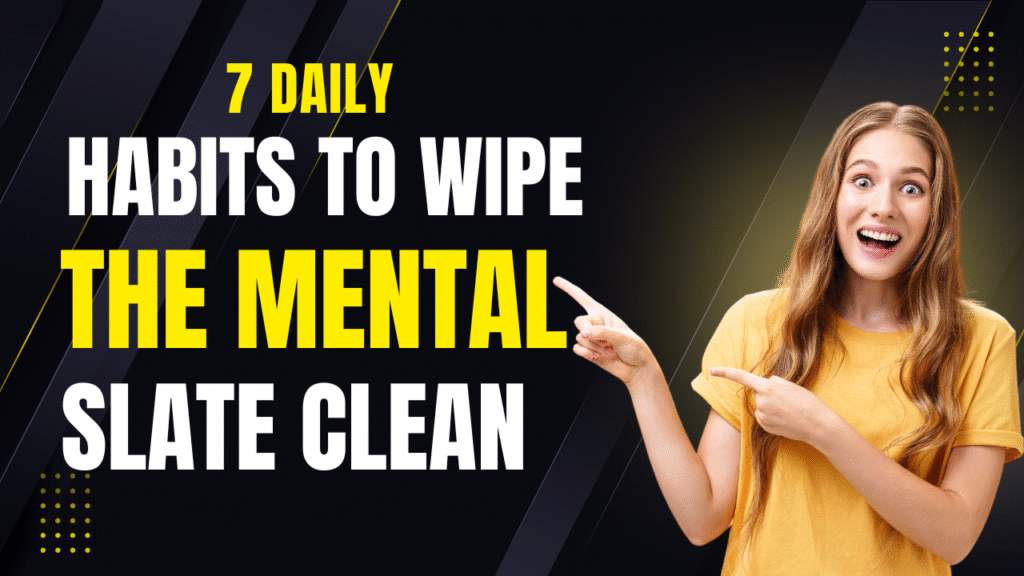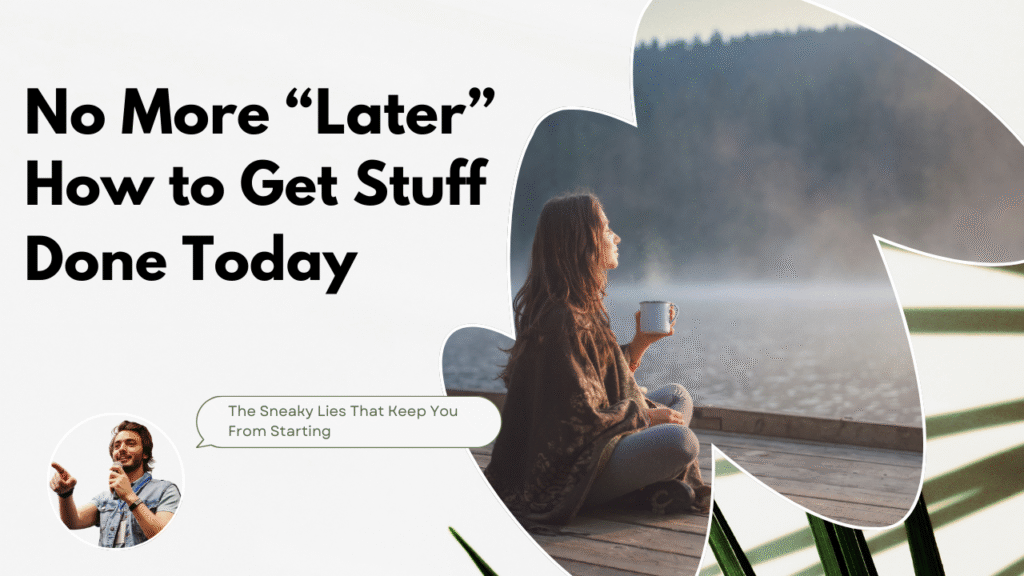Alright, let’s Alright, let’s talk about follow-through.
Not the Instagram-inspiration version where you buy a cute planner, write down “Be consistent” in five different colored pens, and then forget the planner exists by Thursday. I mean the gritty, sometimes boring, often uncomfortable act of actually doing what you said you’d do… even when you don’t feel like it, nobody’s watching, and the excitement is long gone.
Because let’s be honest—most people aren’t struggling to start. We’re drowning in starts. New diets. New routines. New side hustles. Monday-morning promises whispered into coffee mugs. But the “keep going” part? That’s where the graveyard of abandoned goals is.
Following through is rare. Which is exactly why it’s powerful.
The Truth Nobody Likes to Admit
People think the hardest part is getting motivated. Nope. Motivation’s easy. It’s like a free sample at the grocery store—you didn’t have to work for it, and it disappears fast. The real battle starts the moment you’re doing something without the rush of starting fresh.
And you will hit that point. The day the scale doesn’t move. The week your creative project feels flat. The month when work is slow and you’d rather scroll your phone than chip away at that long-term plan. That’s the moment your brain whispers, Maybe we don’t actually need to do this today.
That voice isn’t the enemy. It’s just lazy. And if you listen to it often enough, it will run your life.
Why We Quit (Even When We Swear We Won’t)
We bail for all sorts of noble-sounding reasons:
- “I just don’t want to burn out.”
- “It’s not the right time.”
- “I’ll come back to it when I can give it my best.”
Sometimes those reasons are real. Most of the time? They’re a nicer outfit for plain old avoidance.
We’re wired to chase short-term comfort. And follow-through rarely feels comfortable in the moment. It costs you time, energy, sometimes pride. That’s why it has to be a decision, not a mood. You can’t follow through only when you feel like it—because those days will be rare.
Building the Muscle
And yes, it’s a muscle. Not a switch you flip. You strengthen it the same way you get stronger in the gym—by showing up and doing the reps even when the workout isn’t fun.
That might mean writing 200 words a day even if they’re terrible. Going for the walk in the rain. Making the phone call you’ve been putting off, even if your stomach turns over before you hit “dial.”
Here’s the thing: the size of the action doesn’t matter. What matters is proving to yourself that your word means something. If you told yourself you’d do it, you do it. Tiny or massive, glamorous or dull.
A Little Trick I’ve Used
There’s this moment, right before you flake on something, where you’re weighing the cost. “Do I really need to do this today?” That’s your window.
Instead of debating, shrink the thing down to the smallest possible version. Planned a full workout but you’re exhausted? Do five push-ups. Said you’d read for 30 minutes? Read one page. The point is not to check a box—it’s to send a clear signal to your brain: We finish what we start.
Over time, that identity sticks. You stop negotiating with yourself so much. You just… do it.
The Role of Self-Respect
Nobody says this out loud, but a big reason people don’t follow through is they’ve trained themselves not to take their own word seriously.
Every time you break a promise to yourself—“I’ll start tomorrow,” “I’ll only have one cookie,” “I’ll work on that project this weekend”—you chip away at trust. Eventually, you don’t even believe your own commitments. That’s a dangerous place to be.
Follow-through isn’t just about the task. It’s about repairing that trust. Proving—again and again—that you can rely on you.
The Quiet Payoff
Something strange happens when you get good at following through. The world stops feeling so chaotic. Your word—internally and externally—carries weight. People notice. More importantly, you notice.
And here’s the best part: it spills over. You become the person who keeps appointments, meets deadlines, finishes what you start… and that confidence starts leaking into places you didn’t expect. You take bigger risks because you trust yourself to handle them.
But What If You Mess Up?
You will. Everyone does. The difference between someone who follows through and someone who doesn’t isn’t perfection—it’s recovery speed.
When you miss a day, a deadline, a promise, you don’t vanish for a month licking your wounds. You reset immediately. Not Monday. Not “after things calm down.” Now.
Missing once won’t kill your progress. Missing twice… that’s where habits die.
The Boring Secret
Want to know the real, unsexy formula?
- Decide clearly what you’re going to do.
- Make it specific enough that you know when it’s done.
- Do it no matter how you feel.
- Repeat until it’s part of you.
That’s it. No magic app. No productivity hack so clever it erases resistance. Just stubborn consistency, built brick by brick.
Final Thought (Before You Scroll Away)
You don’t need to overhaul your whole life to become someone who follows through. You just need to start keeping tiny promises to yourself. And then defend those promises like they matter—because they do.
It’s not about discipline for the sake of discipline. It’s about becoming the kind of person whose own word is a solid foundation instead of shifting sand. Someone who doesn’t just say they’ll do something… but quietly, persistently, actually does.
And if you can do that—especially in the small things—you’ll find the big things start taking care of themselves.
Now… what’s the next thing you said you’d do? Go do it. Even if it’s just one push-up. Even if it’s one messy sentence in your notebook. Because every follow-through—no matter how small—counts.



